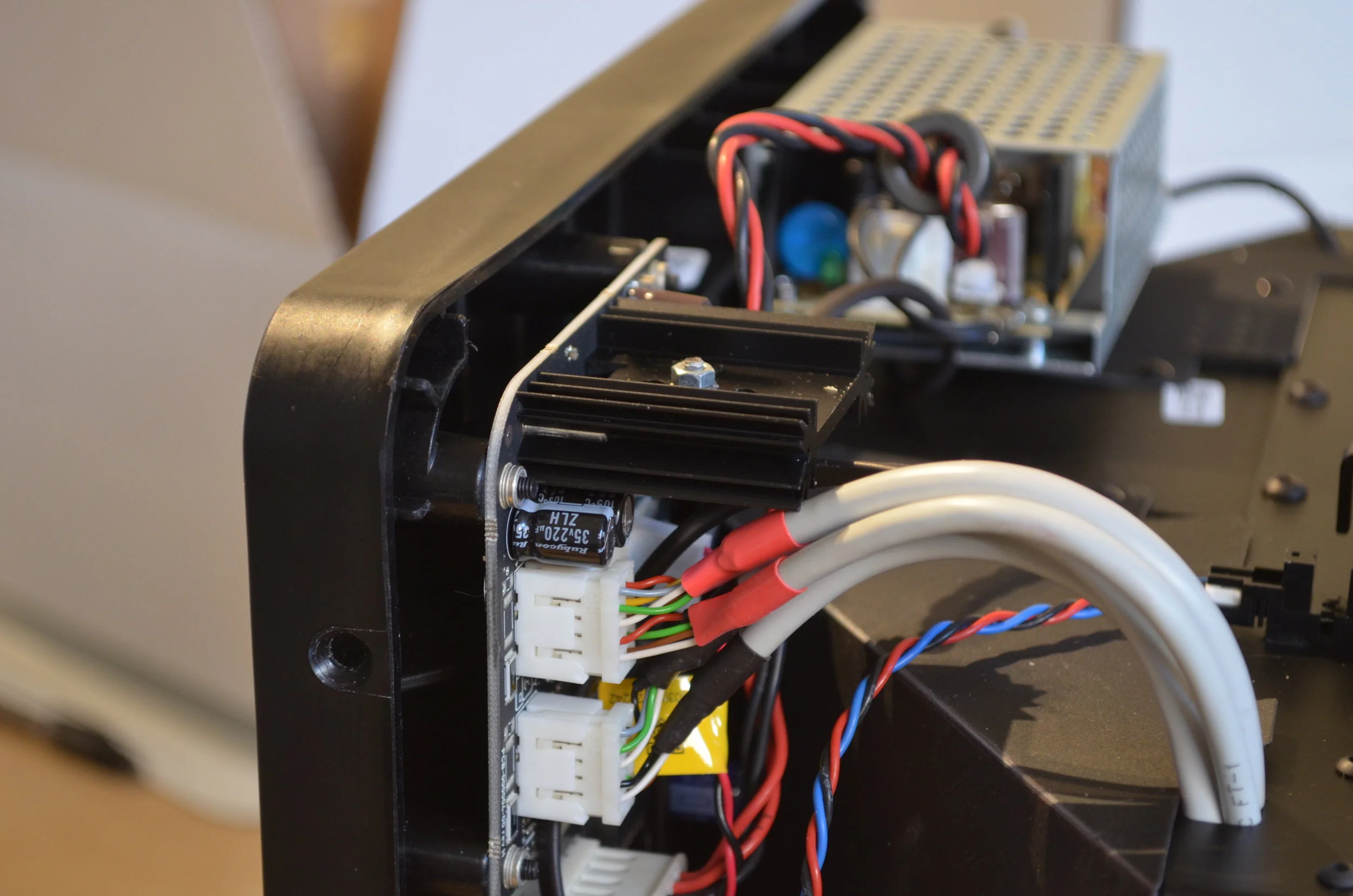Design:
- When it comes to the latest and greatest in tech-driven projects, accessibility concerns are rarely built-in from the beginning. In the case of the automated restaurant Eatsa, their lack of accessibility in their design process has resulted in a lawsuit filed by the American Council for the Blind.
- If you want to learn about product design and development from us, we have a couple of events coming up: we'll be presenting at FUSE - Formlabs User Conference (June 6th at MIT Media Lab in Cambridge, MA) and at The Hardware Workshop (May 4th & 5th at Bolt in Boston).
Machines for Moving:
- New York recently cracked down on electric bicycles, confiscating 247 of them. Anyone who has spent much time in the city knows the ubiquity of these zippy little machines, which boost the human capabilities of harried delivery workers bringing pho, pizza, and everything else you might order from your favorite smartphone app. While the e-bikes are illegal under New York regulations, they are very much a part of the ad-hoc social and technological infrastructure of the city- without them the delivery business and the city itself would be markedly different.
- Underwater behemoths for harvesting minerals from the sea floor are slated to start deploying in 2019.
Solutions from Down the Supply Chain:
- Apple has released their 2017 Supplier Report which now discloses their cobalt smelters. The element is commonly sourced from conflict zones and many of the companies involved in smelting operations have been found to use child labor or other unethical/illegal labor practices. Following some great in-depth reporting on the cobalt mining and processing industry from the Washington Post last year,Apple has expanded their transparency and compliance efforts.
Branded:
- There's much to be said about the obsession with "authenticity" - perhaps we've been spoon-fed so much advertising simulacrum that we long for something with the scent of the genuine. But with so little left untouched by marketing ploys, it seems like only what is over can remain authentic in its fixed-ness. All else is at risk of rebooting or rebranding: actions that fling a once solid sense of place, time and tone into some unfamiliar configuration. The dead-ended brand is a sort of psychological home; a mental space that we can return to and count on to provide us a certain feeling time and time again. So maybe it's not surprising that the bland, brand new luxury apartment market would attempt to imply real world origins, some anchoring in past and place. Often these developments are given pseudo-historical, implied-industrial names that reference what was once there (or could have been there) similar to how suburban subdivisions are named for the natural landscapes they displace. In this case, it's a set of incredibly expensive NYC apartments ($16,000+ per month) with a salvaged Pearl Paint sign adorning the lobby. It's an object-in-context that begs two very different readings: either a tribute to the artists and neighborhood histories of NYC, or gentrification's grim trophy of another community converted. The fact that cultural production is what can make a neighborhood "hot" in the first place makes turning an art supply store sign into set dressing for ultra-expensive apartments beyond the reach of most creative folks feels like a very tone-deaf gesture, if not downright salting the wound.
Engineering Communities:
- The "Maker Movement" was supposed to enable the masses to tinker, tear down and rebuild the world of technology around them; a democratization of the digital means of production stretching from website to widget. While many successful startups have emerged from the quest to bring precise, powerful lab and shop equipment into the home and small business, most of these innovations have ended up in the homes and garages of engineers rather than boosting the capabilities of the average person. For a true renaissance of invention and repair to happen at a grassroots level, a more complete ecosystem is required. One essential element of such an ecosystem is making tools available to as many people as possible. Maker Spaces like TechShop provide complex, big-ticket tools for community use, but with membership fees that are beyond the reach of many. An article from the Star-Tribune highlights a new tool library project in St. Paul that lets people check out a wide variety of hand and power tools for $55 per year.

